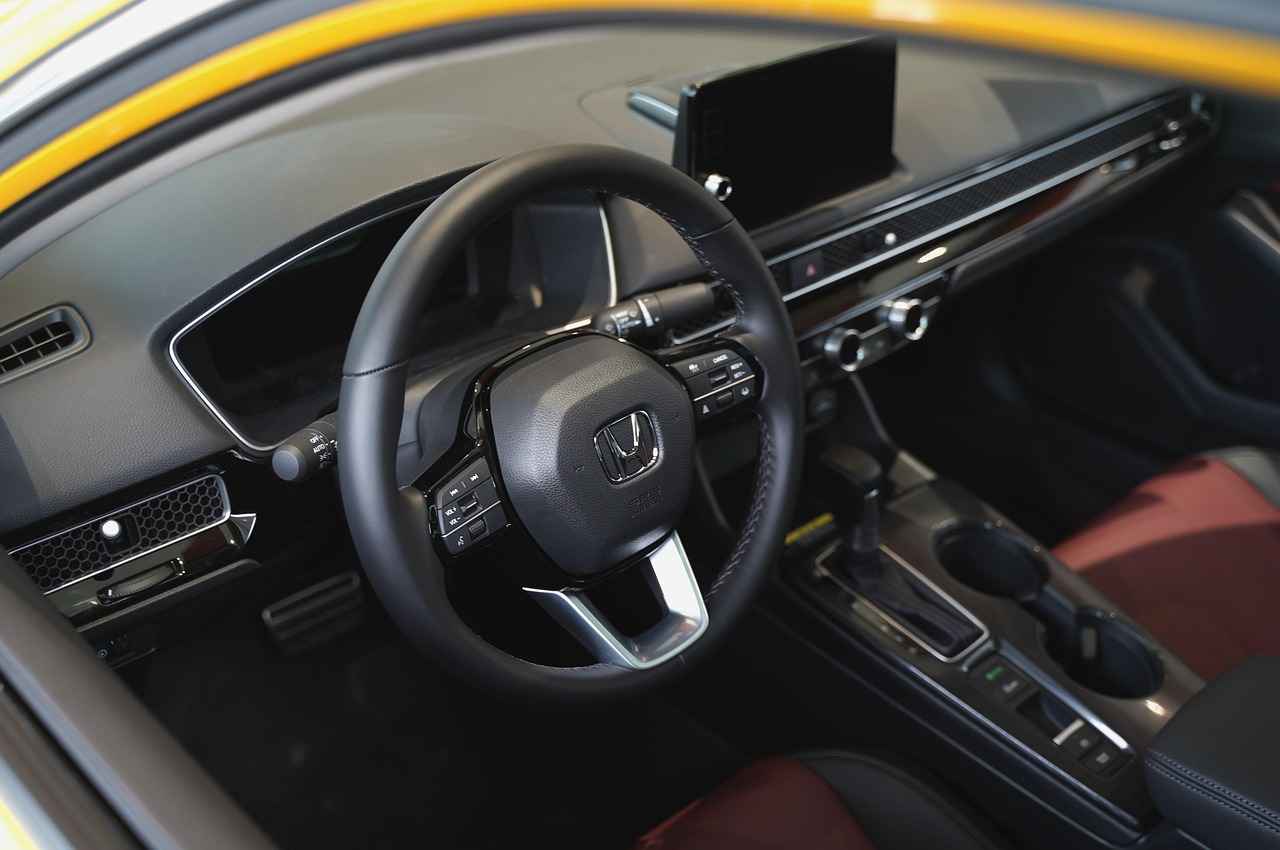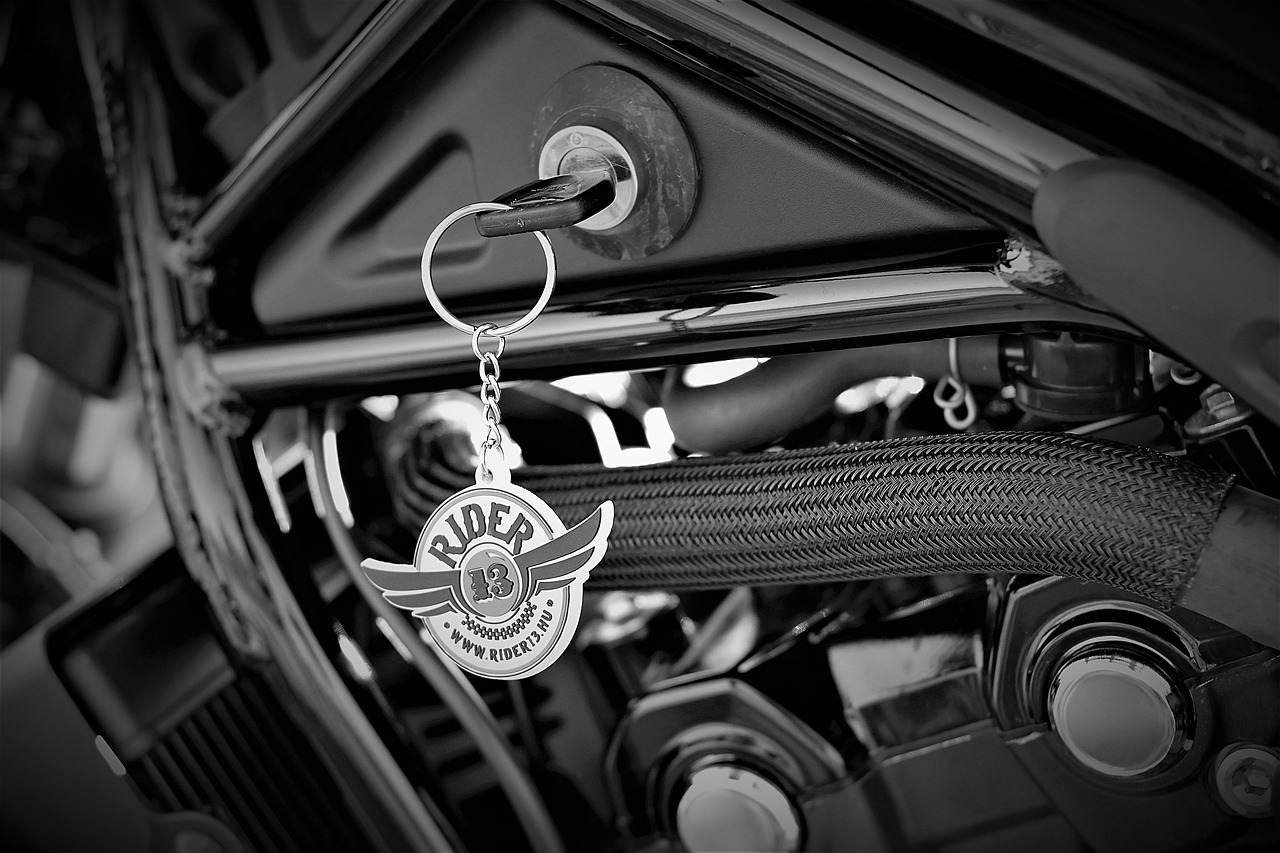The Honda Civic is renowned for its impressive fuel efficiency, making it a popular choice among drivers looking to save on gas. However, several factors can influence the miles per gallon (MPG) that this vehicle can achieve. Understanding these factors is essential for optimizing fuel consumption and enhancing overall vehicle performance.
Understanding Fuel Efficiency Ratings
Fuel efficiency ratings provide valuable insights into how well a vehicle utilizes fuel. These ratings are determined through standardized testing procedures that measure the distance a car can travel on a specific amount of fuel. For Honda Civic owners, familiarizing themselves with these ratings can help set realistic expectations for their vehicle’s performance.
Engine Type and Performance
- Gasoline Engines: Traditional gasoline engines offer a balance of power and efficiency, typically achieving respectable MPG ratings under normal driving conditions.
- Hybrid Engines: Hybrid options leverage electric power to boost fuel efficiency, often resulting in significantly better MPG figures, especially in city driving scenarios.
Impact of Transmission Types
The type of transmission—whether manual or automatic—can also play a crucial role in fuel consumption. Generally, manual transmissions may offer better control over fuel usage, while modern automatic transmissions are designed to optimize shifting for improved efficiency.
Driving Habits and Fuel Consumption
How a driver operates their vehicle can greatly affect fuel efficiency. For instance, maintaining a steady speed and avoiding rapid acceleration can lead to better MPG. Additionally, minimizing idling time and reducing short trips can help maximize fuel economy.
Maintenance and Fuel Efficiency
Regular maintenance is vital for keeping the Honda Civic running efficiently. Practices such as ensuring proper tire pressure, performing engine tune-ups, and using quality fuel can significantly enhance fuel economy.
Environmental Factors Affecting MPG
External conditions like weather and terrain can also impact the Honda Civic’s fuel efficiency. For example, extreme temperatures can affect engine performance, while driving on hilly terrain may require more power, thus reducing MPG.
Choosing the Right Fuel
The type of fuel used can influence fuel efficiency. While regular fuel is sufficient for most Civic models, some drivers may wonder if premium fuel offers any substantial benefits. Understanding the differences can help drivers make informed decisions about fuel choices.

Understanding Fuel Efficiency Ratings
Understanding fuel efficiency ratings is essential for any vehicle owner, especially for those who drive a Honda Civic. These ratings provide vital information about how far a vehicle can travel on a gallon of fuel, which directly impacts both the owner’s wallet and the environment. In this section, we will explore how these ratings are determined and their significance for Honda Civic owners.
Fuel efficiency ratings are typically expressed in miles per gallon (MPG) and can vary based on several factors. The Environmental Protection Agency (EPA) conducts standardized tests to evaluate a vehicle’s fuel economy, which includes city, highway, and combined driving conditions. These tests simulate real-world driving scenarios to give consumers a realistic expectation of a vehicle’s performance.
For Honda Civic owners, understanding these ratings is crucial. A higher MPG rating indicates better fuel efficiency, meaning less frequent trips to the gas station and lower fuel costs over time. Additionally, improved fuel efficiency contributes to a reduced carbon footprint, making the Honda Civic a more environmentally friendly choice.
When assessing the fuel efficiency of a Honda Civic, it’s important to consider various factors that can influence these ratings. The engine type, for instance, plays a significant role. Honda offers different engine options, including gasoline and hybrid variants, each with distinct MPG ratings. Furthermore, driving habits, maintenance practices, and even environmental conditions can affect a vehicle’s overall fuel economy.
In summary, fuel efficiency ratings are a critical aspect of vehicle performance that every Honda Civic owner should understand. By being informed about how these ratings are determined and what they mean, drivers can make better choices that enhance their driving experience while also being mindful of their fuel consumption and environmental impact.

Engine Type and Performance
The engine type plays a crucial role in determining the overall fuel efficiency of the Honda Civic. Various engine options are available, each offering distinct advantages and disadvantages in terms of performance and miles per gallon (MPG) ratings. Understanding these differences can help potential buyers make informed decisions based on their driving needs and preferences.
Honda offers several engine configurations for the Civic, primarily categorized into traditional gasoline engines and advanced hybrid systems. Each engine type is engineered to deliver a unique balance of power, efficiency, and driving experience.
| Engine Type | MPG Rating (City) | MPG Rating (Highway) |
|---|---|---|
| 2.0L I4 Gasoline | 30 | 37 |
| 1.5L Turbocharged I4 Gasoline | 33 | 42 |
| 2.0L I4 Hybrid | 40 | 45 |
The 2.0L I4 gasoline engine is designed for those who prioritize a balance between performance and fuel efficiency. With an MPG rating of 30 in the city and 37 on the highway, it provides a reliable driving experience without compromising too much on fuel economy.
On the other hand, the 1.5L turbocharged I4 gasoline engine offers a more spirited driving experience, achieving 33 MPG in the city and an impressive 42 MPG on the highway. This engine is ideal for drivers seeking a blend of power and efficiency.
For those looking for maximum fuel efficiency, the 2.0L I4 hybrid engine stands out with a remarkable 40 MPG in the city and 45 MPG on the highway. This engine utilizes electric power to enhance fuel efficiency, making it an excellent choice for environmentally conscious drivers.
Overall, the choice of engine in the Honda Civic significantly influences fuel efficiency, and understanding the differences between these options can help drivers optimize their mileage while enjoying a comfortable and responsive ride.
Gasoline vs. Hybrid Engines
When it comes to fuel efficiency, gasoline engines and hybrid engines present distinct characteristics that cater to different consumer needs. This section delves into the nuances of each engine type, highlighting their respective advantages and disadvantages.
Gasoline engines are traditionally known for their reliability and performance. They provide a robust driving experience with quick acceleration and smooth operation. However, their fuel economy often falls short compared to hybrid options. The typical MPG (miles per gallon) for gasoline engines tends to be lower, especially in urban driving conditions where stop-and-go traffic is prevalent.
- Advantages of Gasoline Engines:
- Higher power output, suitable for performance-oriented driving.
- Widespread availability and lower initial purchase cost.
- Simpler maintenance and repair processes.
- Disadvantages of Gasoline Engines:
- Lower fuel efficiency, especially in city driving.
- Higher emissions contributing to environmental concerns.
- Potentially higher long-term fuel costs.
Hybrid engines combine a gasoline engine with an electric motor, allowing for greater fuel efficiency and reduced emissions. This technology is particularly advantageous for urban drivers who frequently encounter stop-and-go traffic, as hybrids can operate solely on electric power during low-speed conditions.
- Advantages of Hybrid Engines:
- Significantly improved fuel economy, often achieving higher MPG ratings.
- Lower emissions, making them more environmentally friendly.
- Regenerative braking systems that enhance energy efficiency.
- Disadvantages of Hybrid Engines:
- Higher initial purchase price compared to gasoline engines.
- Complexity in maintenance and potential repair costs.
- Battery replacement concerns, which can be costly.
In summary, the choice between gasoline and hybrid engines largely depends on individual driving habits and preferences. While gasoline engines offer power and simplicity, hybrids present a compelling case for those prioritizing fuel efficiency and environmental impact.
Fuel Economy of Gasoline Engines
When it comes to the , understanding their performance characteristics is essential for drivers seeking a balance between power and efficiency. Gasoline engines are designed to deliver a satisfying driving experience while maintaining reasonable fuel consumption. This section will delve into the key aspects that influence the fuel economy of gasoline engines, particularly in the context of popular vehicles like the Honda Civic.
Fuel economy ratings, typically expressed in miles per gallon (MPG), are determined through standardized testing procedures. These ratings provide valuable insights into how a vehicle performs under various conditions, such as city driving, highway cruising, and combined scenarios. The Honda Civic, for instance, has consistently received commendable ratings, making it a popular choice among fuel-conscious consumers.
The fuel efficiency of gasoline engines can vary significantly based on driving conditions. In urban environments, frequent stops and starts can lead to lower MPG ratings, while highway driving often results in improved fuel economy due to steady speeds. Additionally, factors such as traffic congestion and road conditions can further influence fuel consumption.
Modern gasoline engines incorporate advanced technologies such as variable valve timing and turbocharging, which enhance overall efficiency without sacrificing power. These innovations allow for better air-fuel mixing and combustion, leading to improved fuel economy. For example, the Honda Civic’s turbocharged engine options provide a notable increase in MPG ratings while delivering robust performance.
While official ratings provide a baseline, real-world experiences often differ. Many drivers report varying fuel economy based on their individual driving habits and maintenance practices. Regular maintenance, such as keeping tires properly inflated and ensuring timely oil changes, can significantly enhance the fuel efficiency of gasoline engines.
In summary, gasoline engines, particularly in vehicles like the Honda Civic, offer a compelling mix of power and efficiency. By understanding the factors that affect fuel economy, drivers can make informed decisions to optimize their vehicle’s performance and fuel consumption.
Benefits of Hybrid Technology
Hybrid technology has revolutionized the automotive industry, particularly in enhancing fuel efficiency. The Honda Civic, a popular choice among compact cars, benefits significantly from this innovative technology. By integrating electric power with traditional gasoline engines, hybrid systems provide a unique approach to improving miles per gallon (MPG).
One of the primary advantages of hybrid technology in the Honda Civic is its ability to reduce fuel consumption during various driving conditions. The hybrid engine operates by seamlessly switching between the electric motor and the gasoline engine, optimizing performance based on the driving scenario. For instance, during low-speed driving or stop-and-go traffic, the electric motor can take over, resulting in zero fuel consumption while idling.
Another critical aspect is the regenerative braking feature found in hybrid vehicles. This system captures energy typically lost during braking and converts it into electricity, which is then stored in the battery. This process not only enhances the vehicle’s overall efficiency but also extends the life of the brakes, leading to lower maintenance costs.
Moreover, hybrid technology contributes to a smoother driving experience. The electric motor provides instant torque, allowing for quick acceleration without the lag often associated with traditional gasoline engines. This responsiveness can lead to a more enjoyable driving experience while maintaining impressive fuel economy.
Additionally, Honda’s commitment to environmental sustainability is evident in its hybrid models. By reducing greenhouse gas emissions, the Honda Civic hybrid aligns with global efforts to combat climate change, making it a responsible choice for eco-conscious drivers.
In summary, the benefits of hybrid technology in the Honda Civic are multifaceted. From improved fuel efficiency and reduced emissions to enhanced driving performance, hybrid engines represent a significant advancement in automotive engineering. As consumers increasingly prioritize sustainability and efficiency, the Honda Civic hybrid stands out as a leading option in the compact car market.
Impact of Transmission Types
The choice of transmission in a vehicle plays a significant role in determining its fuel efficiency. In the case of the Honda Civic, both manual and automatic transmissions offer unique advantages and disadvantages that can influence miles per gallon (MPG) ratings. Understanding these differences is essential for drivers looking to optimize their fuel consumption.
- Manual Transmissions: Manual transmissions typically allow for greater driver control over gear selection. This can lead to improved fuel efficiency when driven skillfully. Drivers can shift gears at optimal RPMs, potentially enhancing MPG, especially in highway driving conditions.
- Automatic Transmissions: Modern automatic transmissions, particularly those with CVT (Continuously Variable Transmission) technology, have made significant strides in fuel efficiency. They automatically adjust to the most efficient gear ratios, which can result in higher MPG ratings in various driving situations.
When comparing the two, it’s important to consider the following factors:
| Transmission Type | Fuel Efficiency | Driver Engagement |
|---|---|---|
| Manual | Higher potential MPG with skilled driving | More engaging and interactive |
| Automatic | Generally more convenient, with improved MPG in newer models | Less driver control, but easier for daily commutes |
In summary, the choice between manual and automatic transmission can greatly affect the Honda Civic’s fuel consumption. While manual transmissions may appeal to those seeking a more engaging driving experience, automatic transmissions often provide better fuel efficiency through advanced technology. Ultimately, the decision should align with the driver’s preferences and driving habits to achieve optimal MPG.

Driving Habits and Fuel Consumption
Driving habits are crucial in determining how efficiently a vehicle consumes fuel. In the case of the Honda Civic, understanding these habits can lead to substantial improvements in miles per gallon (MPG). This section will explore various driving behaviors and their direct impact on fuel efficiency.
One of the most significant factors influencing fuel consumption is speed management. Driving at high speeds can drastically reduce MPG due to increased aerodynamic drag. Maintaining a steady speed, particularly at highway limits, can enhance fuel efficiency. Research shows that driving at speeds above 55 mph can decrease fuel economy by up to 15%. Utilizing cruise control on highways is an effective method to maintain consistent speed and optimize fuel usage.
How a driver accelerates can also affect fuel efficiency. Rapid acceleration and hard braking can lead to increased fuel consumption. Gentle acceleration and gradual deceleration allow the engine to operate more efficiently. By anticipating traffic flow and adjusting speed accordingly, drivers can improve their MPG significantly.
Frequent idling and taking short trips can negatively impact fuel economy. When a vehicle idles, it consumes fuel without moving, which can be wasteful. Moreover, short trips do not give the engine enough time to reach its optimal operating temperature, leading to incomplete combustion and higher fuel consumption. It is advisable to combine errands into one trip whenever possible to minimize these effects.
The use of air conditioning can also influence fuel efficiency. Running the AC can increase the load on the engine, which may lead to higher fuel consumption. When driving at lower speeds, it is often more fuel-efficient to open the windows rather than use the air conditioning. However, at highway speeds, using the AC is generally more efficient than having the windows down due to aerodynamic drag.
Finally, a driver’s overall style and the conditions of the roads they navigate play a vital role in fuel efficiency. Defensive driving, which involves anticipating the actions of other drivers and adjusting speed accordingly, can lead to smoother driving and better fuel economy. Additionally, driving on well-maintained roads can enhance vehicle performance, while rough or uneven surfaces may increase fuel consumption.
Speed and Acceleration
When it comes to optimizing fuel efficiency in your Honda Civic, understanding the impact of driving speed and acceleration patterns is crucial. These factors can significantly influence your vehicle’s miles per gallon (MPG) ratings, ultimately affecting your overall fuel consumption and costs.
Maintaining a steady speed during your drives can lead to improved fuel economy. Frequent acceleration and deceleration not only consume more fuel but also place additional strain on the engine. Studies have shown that driving at a consistent pace, particularly on highways, can enhance fuel efficiency by reducing the amount of fuel needed to overcome air resistance and maintain momentum.
Moreover, rapid acceleration can lead to a substantial increase in fuel consumption. When drivers accelerate quickly, the engine works harder, which in turn uses more fuel. Instead, adopting a smoother driving style, where you gradually increase speed, can help in achieving better MPG ratings. For instance, accelerating gently from a stoplight rather than flooring the accelerator can yield noticeable improvements in fuel economy.
In addition to speed, the frequency of speed changes also plays a role. Frequent stops and starts, common in urban driving, can negatively impact fuel efficiency. Maintaining a steady pace, especially in traffic, can minimize these fluctuations and lead to better fuel economy. Utilizing cruise control on highways can also help in maintaining a constant speed, further enhancing MPG.
In summary, being mindful of your driving habits—specifically your speed and acceleration—can lead to significant improvements in fuel efficiency for your Honda Civic. By adopting smoother driving techniques and maintaining steady speeds, you can maximize your vehicle’s performance and save on fuel costs.
Idling and Short Trips
When it comes to maximizing fuel efficiency in the Honda Civic, understanding the impact of driving habits is essential. One of the most significant factors that can adversely affect fuel economy is frequent idling and making short trips. These driving scenarios not only waste fuel but can also lead to increased emissions and wear on the vehicle.
Idling refers to keeping the engine running while the vehicle is stationary. While it may seem harmless, prolonged idling can consume a surprising amount of fuel. In fact, an idling engine can burn up to 0.6 gallons of fuel per hour, depending on the engine size and air conditioning use. For Honda Civic owners, this means that unnecessary idling during waits or traffic jams can lead to a significant decrease in overall fuel efficiency.
Short trips, on the other hand, often do not allow the engine to reach its optimal operating temperature. When a vehicle is driven for only a few miles, the engine remains in a cold start condition, which is less efficient and produces higher emissions. Studies show that driving short distances can reduce fuel economy by as much as 20% to 30% compared to longer trips where the engine has had time to warm up.
To mitigate these issues, Honda Civic drivers can adopt several strategies:
- Avoid unnecessary idling: Turn off the engine if you expect to be stopped for more than a minute.
- Combine errands: Plan trips to reduce the number of short drives, allowing the engine to operate efficiently.
- Utilize public transport: For short distances, consider walking or using public transport when feasible.
In conclusion, being mindful of idling and short trips can significantly improve the fuel economy of your Honda Civic. By adopting smarter driving habits, you can enhance your vehicle’s performance while also contributing to a cleaner environment.

Maintenance and Fuel Efficiency
Maintenance is a critical aspect of vehicle ownership, particularly when it comes to maximizing fuel efficiency in the Honda Civic. Regular maintenance not only ensures the vehicle operates smoothly but also plays a significant role in optimizing miles per gallon (MPG). Below, we outline essential maintenance practices that can help maintain or even improve fuel efficiency.
- Tire Maintenance:
Maintaining proper tire pressure is vital for fuel economy. Under-inflated tires create more rolling resistance, which can lead to decreased MPG. Regularly check tire pressure and ensure tires are rotated and aligned as needed.
- Engine Tune-Ups:
Regular engine tune-ups can significantly enhance fuel efficiency. This includes replacing spark plugs, air filters, and fuel filters. A well-tuned engine burns fuel more efficiently, leading to better MPG.
- Oil Changes:
Using the right type of oil and changing it at recommended intervals can improve engine performance. Clean oil reduces friction and helps the engine run more smoothly, which can positively affect fuel consumption.
- Air Filter Replacement:
A clogged air filter can restrict airflow to the engine, causing it to work harder and consume more fuel. Regularly replacing the air filter ensures optimal airflow and engine efficiency.
- Fuel System Cleaning:
Periodic cleaning of the fuel system can remove deposits that accumulate over time. This helps maintain proper fuel flow and combustion, ultimately improving fuel efficiency.
By adhering to these maintenance practices, Honda Civic owners can not only enhance the longevity of their vehicles but also enjoy improved fuel efficiency. A well-maintained vehicle is more reliable and economical, providing a smoother driving experience and better overall performance.
Tire Pressure and Condition
Maintaining the proper tire pressure and ensuring the condition of your tires are in optimal shape are crucial elements that significantly impact the fuel economy of your vehicle, including the Honda Civic. In this section, we will explore how these factors can enhance your miles per gallon (MPG) and overall driving experience.
Firstly, tire pressure plays a vital role in fuel efficiency. When tires are under-inflated, they create more rolling resistance, which means the engine has to work harder to move the vehicle. This increased effort can lead to a noticeable drop in MPG. On the other hand, maintaining the recommended tire pressure can improve fuel efficiency by up to 3% according to various automotive studies. Regularly checking your tire pressure, especially before long trips, can help ensure that your vehicle is running as efficiently as possible.
In addition to pressure, the condition of the tires is equally important. Worn or damaged tires can adversely affect traction and handling, which may lead to inefficient fuel consumption. Tires with uneven wear or low tread depth can compromise safety and reduce fuel economy. It is essential to regularly inspect your tires for signs of wear and replace them when necessary. This proactive approach not only enhances fuel efficiency but also ensures a safer driving experience.
Furthermore, proper alignment and rotation of tires contribute to better fuel economy. Misaligned wheels can cause uneven tire wear and increased rolling resistance, leading to decreased MPG. Regularly rotating your tires can help maintain even wear and prolong their lifespan, ultimately benefiting your fuel efficiency.
In summary, paying attention to both tire pressure and condition is a simple yet effective way to enhance the fuel economy of your Honda Civic. By implementing these maintenance practices, drivers can enjoy better MPG, improved safety, and a more enjoyable driving experience.
Engine Tune-Ups
When it comes to maintaining your Honda Civic, regular engine tune-ups play a pivotal role in ensuring that your vehicle operates at its best. These tune-ups are not just routine checks; they are essential for optimizing performance and enhancing fuel efficiency. Understanding the significance of engine tune-ups can help drivers make informed decisions that ultimately lead to better mileage and reduced fuel costs.
What is an Engine Tune-Up? An engine tune-up typically involves a series of maintenance tasks designed to keep the engine running smoothly. This includes checking and replacing spark plugs, inspecting ignition systems, and ensuring that fuel injectors are functioning correctly. By addressing these components, a tune-up can significantly improve how efficiently your engine burns fuel.
Impact on Fuel Economy One of the primary benefits of regular engine tune-ups is their direct impact on fuel economy. A well-tuned engine operates more efficiently, which means it consumes less fuel for the same distance traveled. For Honda Civic owners, this can translate to noticeable savings at the pump, especially over time.
| Component | Effect of Tune-Up |
|---|---|
| Spark Plugs | Improved ignition efficiency and combustion |
| Fuel Injectors | Better fuel atomization leading to enhanced performance |
| Air Filters | Increased airflow resulting in improved fuel efficiency |
Signs Your Engine Needs a Tune-Up It’s crucial to recognize when your engine may require a tune-up. Common indicators include a decrease in fuel efficiency, rough idling, or difficulty starting the vehicle. Addressing these issues promptly can prevent more severe problems down the line and ensure that your Honda Civic remains reliable.
In conclusion, prioritizing engine tune-ups is essential for maintaining the fuel economy of your Honda Civic. By investing in regular maintenance, you not only enhance your vehicle’s performance but also contribute to long-term savings on fuel costs. A well-maintained engine is key to enjoying a smooth and efficient driving experience.

Environmental Factors Affecting MPG
The fuel efficiency of the Honda Civic is not solely determined by its mechanical components; rather, it is significantly influenced by various environmental factors. This section delves into two primary elements: weather conditions and driving terrain, both of which can substantially affect the vehicle’s miles per gallon (MPG).
Weather plays a crucial role in the performance of any vehicle, including the Honda Civic. Factors such as temperature and precipitation can have a direct impact on fuel efficiency:
- Temperature: In colder climates, engines take longer to reach optimal operating temperatures, which can lead to increased fuel consumption. Studies show that fuel efficiency can drop by as much as 12% in very cold weather.
- Rain and Snow: Wet conditions can create additional drag and reduce traction, prompting drivers to accelerate more aggressively. This behavior can further decrease MPG, particularly in slippery conditions.
The type of terrain on which the Honda Civic is driven also impacts fuel efficiency. Different driving surfaces can challenge the vehicle’s performance:
- Hilly Roads: Navigating steep inclines requires more power, which translates to higher fuel consumption. The Civic’s MPG can significantly decrease when frequently driving in mountainous areas.
- Urban vs. Rural: Urban driving often involves frequent stops and starts, which can lead to lower fuel efficiency. In contrast, rural roads may allow for more consistent speeds, potentially improving MPG.
Understanding these environmental factors is essential for Honda Civic owners looking to optimize their fuel efficiency. By being mindful of weather conditions and choosing routes that minimize elevation changes, drivers can enhance their vehicle’s performance and overall MPG.
Weather Conditions
Weather conditions play a significant role in determining the fuel efficiency of vehicles, including the Honda Civic. Understanding how various elements such as temperature and precipitation affect engine performance can help drivers optimize their mileage.
Temperature influences engine efficiency in several ways. In cold weather, engines take longer to reach their optimal operating temperature, which can lead to increased fuel consumption. This is because the engine runs richer (more fuel relative to air) until it warms up. Conversely, in hot weather, engines can operate more efficiently, but extreme heat can lead to overheating issues, which may also affect performance.
Rain and other forms of precipitation can also affect fuel efficiency. Wet roads can increase rolling resistance, leading to higher fuel consumption. Additionally, when driving in the rain, drivers may need to accelerate more cautiously, which can further impact miles per gallon (MPG). It’s essential to adjust driving habits during inclement weather to maintain optimal fuel efficiency.
Humidity levels can affect the air density, which in turn influences engine performance. High humidity can lead to a decrease in available oxygen for combustion, potentially reducing power output and efficiency. Drivers may notice a slight decrease in MPG during periods of high humidity.
Wind can significantly impact fuel economy, especially at higher speeds. A headwind can create additional drag on the vehicle, forcing the engine to work harder and consume more fuel. Conversely, a tailwind can enhance fuel efficiency by reducing drag, allowing the vehicle to travel more efficiently.
In summary, various weather conditions—including temperature, precipitation, humidity, and wind—can have a profound impact on the fuel efficiency of the Honda Civic. By understanding these factors, drivers can make informed decisions to maximize their MPG.
Driving Terrain
When it comes to the Honda Civic, driving on hilly or uneven terrain can significantly impact fuel efficiency. Understanding how these terrains affect performance is essential for maximizing miles per gallon (MPG). This section delves into the various ways that different driving surfaces can influence the Civic’s fuel consumption.
Hilly terrain often requires more energy from the engine, especially during ascents. As the Civic climbs steep hills, it must exert more power, which can lead to increased fuel consumption. The engine works harder, burning more fuel to maintain speed and overcome gravitational resistance. In contrast, when descending, the vehicle may experience a temporary boost in efficiency, as gravity assists in propulsion. However, this can also lead to excessive speed, prompting the driver to apply brakes more frequently, which can negate some of the fuel savings.
Uneven surfaces, such as gravel roads or pothole-ridden streets, can also adversely affect fuel economy. The Civic’s suspension system is designed for smooth pavement, and navigating rough terrain can cause increased rolling resistance. This means that the engine must work harder to maintain speed, leading to higher fuel consumption. Additionally, frequent acceleration and deceleration on these surfaces can disrupt the vehicle’s momentum, further impacting MPG.
To optimize fuel efficiency when driving on hilly or uneven terrain, drivers can adopt several strategies:
- Maintain Steady Speeds: Avoid rapid acceleration and deceleration to keep fuel consumption in check.
- Use Engine Braking: When descending hills, take advantage of engine braking to reduce the need for constant braking.
- Plan Routes Wisely: If possible, choose routes that minimize steep inclines and rough patches.
In summary, while the Honda Civic is a well-engineered vehicle, its performance can be significantly influenced by the driving terrain. By understanding these effects and implementing practical driving habits, owners can enhance their fuel efficiency, even in challenging conditions.

Choosing the Right Fuel
The choice of fuel can significantly influence the fuel efficiency of your Honda Civic. Understanding the differences between fuel types is essential for maximizing your vehicle’s miles per gallon (MPG) and ensuring optimal performance. This section delves into the various fuel options available and their respective impacts on MPG.
One of the most common questions among Honda Civic owners is whether to use regular or premium fuel. Regular fuel typically has an octane rating of 87, while premium fuel has a higher octane rating of 91 or 93. Higher octane fuels are designed to prevent engine knocking and can enhance performance in high-compression engines. However, most Honda Civics are engineered to run efficiently on regular fuel, and using premium fuel may not provide a noticeable increase in MPG.
Some drivers opt for fuel additives that claim to improve fuel economy and engine performance. These additives can include detergents that clean fuel injectors and combustion chambers, potentially leading to more efficient fuel use. While some users report improved MPG, the actual benefits can vary based on driving habits and engine condition. It’s essential to choose reputable products and consult your owner’s manual for recommendations.
In addition to traditional fuels, alternative options such as E85 (a blend of 85% ethanol and 15% gasoline) are available for some Honda Civic models. While E85 can be more environmentally friendly, it often results in lower fuel economy due to its lower energy content compared to gasoline. Therefore, drivers should weigh the environmental benefits against potential decreases in MPG.
In summary, understanding the type of fuel you use can play a crucial role in your Honda Civic’s fuel efficiency. By selecting the appropriate fuel type and considering additives, drivers can enhance their vehicle’s performance and optimize their MPG.
Regular vs. Premium Fuel
When it comes to fueling your Honda Civic, the choice between regular and premium fuel can be a topic of considerable debate among car owners. Understanding the differences between these two fuel types is essential for making an informed decision that can impact your vehicle’s performance and efficiency.
Regular fuel, typically rated at 87 octane, is the standard choice for most Honda Civics. It provides adequate performance for everyday driving and is generally more cost-effective. On the other hand, premium fuel, which usually has an octane rating of 91 or higher, is designed for high-performance vehicles that require higher compression ratios. But does this mean that premium fuel offers significant benefits for Honda Civic owners?
The primary advantage of using premium fuel lies in its ability to prevent knocking and improve engine performance under high-stress conditions. However, most Honda Civics are engineered to run efficiently on regular fuel, which means that the benefits of premium fuel may not be fully realized in these vehicles. In fact, using premium fuel in a Honda Civic that does not require it may lead to unnecessary expenses without substantial gains in fuel efficiency or power.
Another factor to consider is the fuel efficiency. Some drivers believe that premium fuel can enhance miles per gallon (MPG) ratings. However, studies show that the difference in MPG is often minimal and may not justify the higher cost of premium fuel. For drivers focused on maximizing fuel economy, sticking with regular fuel is usually the best option.
Ultimately, the decision to use regular or premium fuel should be based on your specific Honda Civic model and your driving habits. Always consult your owner’s manual for manufacturer recommendations, as this will provide the best guidance on what fuel type is optimal for your vehicle.
Fuel Additives and Their Effects
Fuel additives have gained popularity among drivers seeking to enhance their vehicle’s performance and fuel economy. These products often promise improved efficiency, increased power, and reduced emissions. However, the effectiveness of fuel additives can vary significantly based on their formulation and the specific vehicle in which they are used.
What Are Fuel Additives?
Fuel additives are chemical compounds added to fuel to improve its properties. They can serve various purposes, including:
- Cleaning agents: Remove carbon deposits and other contaminants from engine components.
- Octane boosters: Increase the octane rating of gasoline, which can enhance performance.
- Fuel stabilizers: Prevent fuel degradation during storage.
- Emissions reducers: Help lower harmful emissions produced by the engine.
Evaluating Effectiveness on Fuel Economy
The effectiveness of fuel additives in improving fuel economy is a topic of ongoing debate. Some studies suggest that certain additives can lead to slight improvements in miles per gallon (MPG), particularly those that clean the fuel system and improve combustion efficiency. However, the actual gains may not be substantial enough to justify the cost for all drivers.
Factors Influencing Results
The impact of fuel additives on fuel economy can depend on several factors:
- Vehicle condition: Older vehicles with clogged fuel systems may benefit more from cleaning additives than newer models.
- Driving habits: Aggressive driving can negate any potential benefits gained from using additives.
- Fuel quality: The baseline quality of the fuel used can also affect the performance of additives.
In conclusion, while some drivers may experience improved fuel economy from using additives, results can vary widely. It is essential for consumers to research products, consider their vehicle’s specific needs, and weigh the potential benefits against the costs involved.
Frequently Asked Questions
- What factors affect the Honda Civic’s miles per gallon?
The Honda Civic’s miles per gallon (MPG) can be influenced by several factors including engine type, driving habits, maintenance practices, and environmental conditions. For instance, hybrid engines typically offer better fuel efficiency compared to gasoline engines. Additionally, how you drive, such as accelerating quickly or frequently idling, can significantly impact your MPG.
- How can I improve my Honda Civic’s fuel efficiency?
Improving your Honda Civic’s fuel efficiency can be achieved through a combination of good driving habits and regular maintenance. Maintaining proper tire pressure, avoiding aggressive driving, and ensuring your engine is well-tuned are all effective strategies. You might also consider using fuel-efficient driving techniques, like maintaining steady speeds and minimizing short trips.
- Does the type of fuel I use affect my Civic’s MPG?
Yes, the type of fuel can impact your Civic’s fuel efficiency. While regular fuel is generally sufficient for most Honda Civics, premium fuel may provide slight performance benefits in certain models. However, the difference in MPG might not justify the higher cost for every driver. It’s always best to consult your owner’s manual for the recommended fuel type.
- How does weather affect my Honda Civic’s fuel economy?
Weather conditions can have a notable effect on fuel economy. For example, cold temperatures can reduce engine efficiency, while heavy rain or snow can increase drag and resistance. In general, extreme weather can lead to a decrease in MPG, so it’s essential to drive cautiously and adjust your driving habits accordingly during such conditions.



